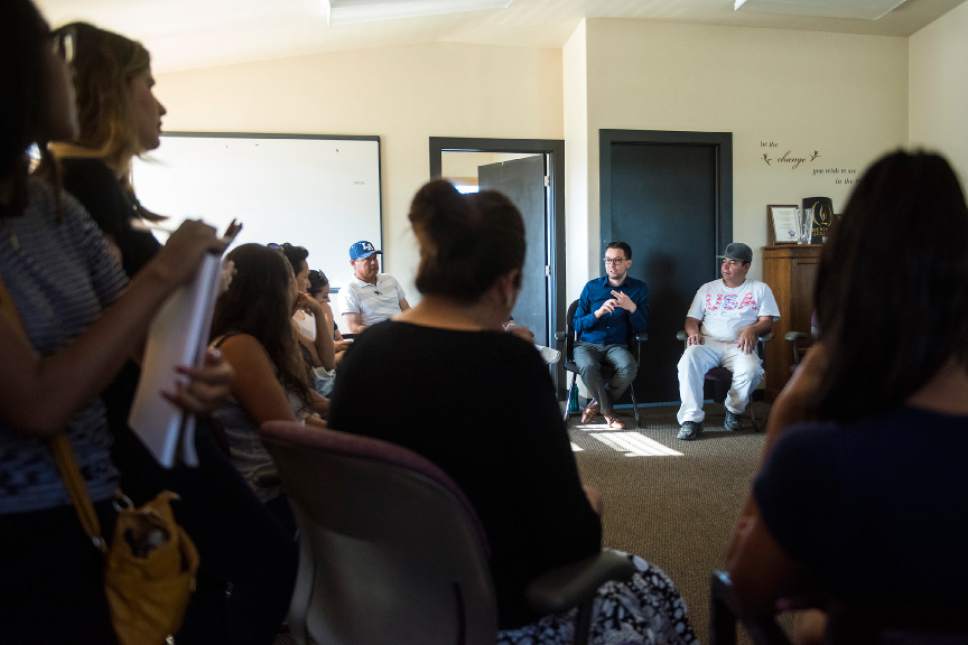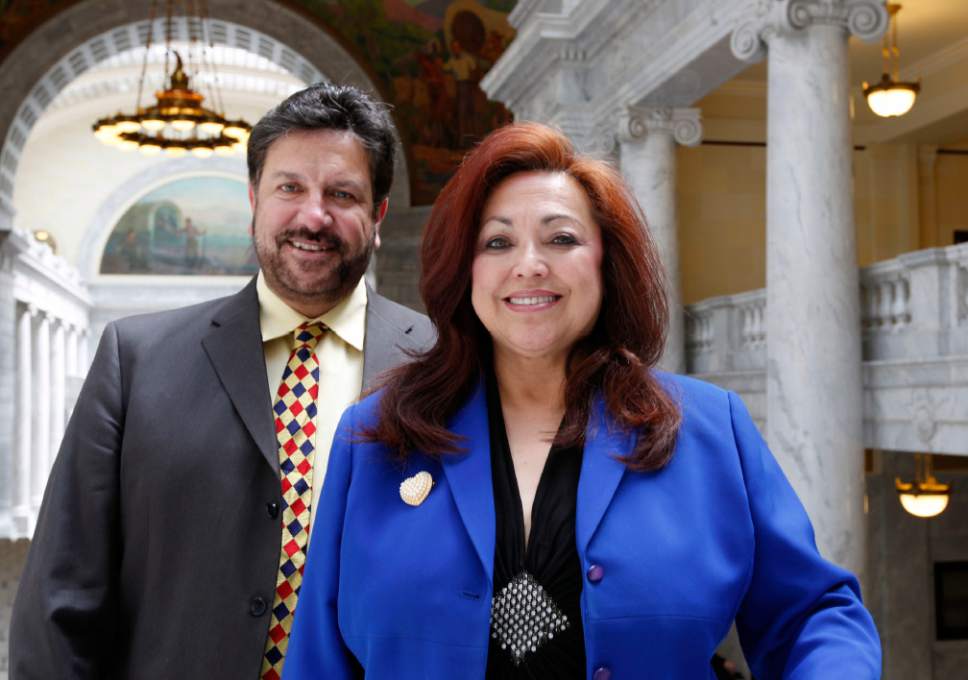This is an archived article that was published on sltrib.com in 2016, and information in the article may be outdated. It is provided only for personal research purposes and may not be reprinted.
Longtime activist Josie Valdez says it's a sign of just how scared Utah Latinos are after the election of Donald Trump.
"I was shopping this morning at [discount retailer] NWS," she said, and "saw many Latinos buying a lot of groceries — like two full grocery carts each, which I found unusual."
When she asked about it in Spanish, they told her they were "stocking up on food so they don't have to go out of their houses so often because they're afraid they'll get reported" as undocumented immigrants.
Valdez told one woman she doubted they faced much real danger. But she responded that '"Trump said he's going to round us all up and send us back, so I want to be as low-profile as possible.'"
Latino leaders say Trump's election has many families with mixed immigration status preparing to go underground to prevent deportation. Educators even reported Wednesday "children in tears because they think their families are going to pack up and move," said Richard Jaramillo, president of the Utah Coalition of La Raza.
Leaders said many Utah residents also were preparing "family plans" to arrange care for U.S. citizen children if a parent is deported (including having their insurance and school information handy) and were bracing for possible mistreatment from people emboldened by Trump's past anti-immigrant statements.
"Dreamers" — undocumented immigrants brought to America as children — worried Trump would remove deferred immigration status programs that have allowed them to work and go to college. They feared the personal information they provided when they applied may now be used to deport them.
"Many Latinos are stunned and scared," Jaramillo said.
Valdez, former vice chairwoman of the Utah Democratic Party, wife of state Rep. Mark Wheatley, D-Murray, and a delegate to this year's National Democratic Convention, said it was almost as though Trump set off a bomb in the Latino community.
"Actually, it's even worse. A bomb will kill you quickly. This is more like a plague that kills you slowly and painfully," she said. "You figure the plague will affect you, but you don't know when. You see the disease spreading."
Jaramillo said Latinos had talked of their fear of Trump for months. "But I don't think many saw a Trump victory as likely," because of polls and pundits' predictions. "So we're waking up in a new world where we have to re-evaluate, reassess and figure out a course of action."
Luis Garza, executive director of Comunidades Unidas, said his agency received numerous calls seeking guidance on what the Trump effect may be on the status of dreamers or other undocumented people.
"We don't know what's going to happen," he said. "So we are telling people that they need to have a family plan, and know their basic rights in case there are any human-rights abuses."
Ciriac Alvarez is typical of dreamers who fear the Deferred Action for Childhood Arrivals (DACA) program, created by President Barack Obama through an executive order, could now disappear or even be used to deport her.
Alvarez, who plans to graduate in spring from the University of Utah, was brought from Mexico at age 5 by her parents. She applied for DACA because it would allow her to attend college and work "and have a really good future."
When she applied, there was "a thought in the back of my head" that the information could someday be used to deport her. The application required information about names, addresses and past residences that essentially "give the government a plan on how they can find you. They know your history."
Alvarez said, "There is a really big fear that the DACA program will be taken away because Trump has said in a lot of his rhetoric that he is anti-immigrant, and anti-Latino," and the information gathered could help deport young dreamers.
Jaramillo said many Latinos also fear that Trump's anti-immigrant statements could embolden his followers to treat them poorly.
The Utah Colleges Exit Poll showed, for example, that three of every four Utahns who voted for Trump believe that immigrants harm the country. More than 80 percent of Trump supporters opposed allowing refugees into the country.
"There is some concern that there will be a bolstering of those supporters that share that same animosity toward the Latino community," Jaramillo said. "But we're hoping that cooler heads will prevail and we'll see some more reasonable and balanced approaches to fix the broken immigration system, and certainly to tone down the vitriol and negative rhetoric toward Latinos."
Jaramillo said Republicans and Trump should remember that Latinos are a growing political force, and "the vitriol and negative rhetoric around immigration and Latinos is not going to be tenable for the Republican Party in the long term. We may have lost this election, but we don't expect to be sidelined long."
Several national groups were also weighing in Wednesday on what Trump's win means to immigration and Latinos.
Roy Beck, executive director of NumbersUSA, a group that seeks to reduce immigration to pre-1965 levels, said the election shows that working-class Americans "voted for enforcement of current immigration laws, deep reduction in the importation of additional workers and measures to limit legal and illegal immigration."
Ali Noorani, executive director of the National Immigration Forum, which argues that immigrants help America, said while many voted for Trump in hopes he will take the country back, "many are waking up this morning afraid they will be taken away by a Trump administration." He urged Congress to act as a check on Trump.
Also, Silky Shah, co-director of the Detention Watch Network that keeps tabs on abuse of undocumented immigrants who are detained, said, "We cannot continue to watch immigrants be scapegoated for the problems of American society," and urged Americans to fight that.





